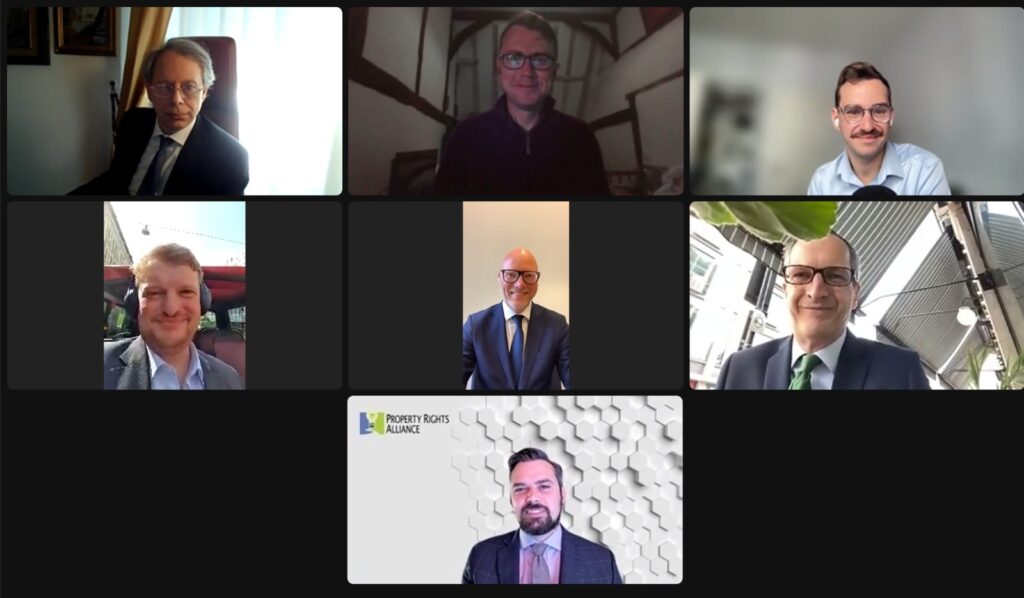Will the WTO Waiver of Intellectual Property Rights Help or Harm the COVID Response ?

On Wednesday, June 8th, SME Europe of the EPP together with the Property Rights Alliance organised the webinar entitled „Will the WTO Waiver of Intellectual Property Rights help or harm the COVID Response?” to discuss the impact of the WTO TRIPS Waiver on IP Rights to keep ensuring that manufacturers still have an incentive to innovate, ensure the safety and efficacy of medicines and have the resources to invest in the next generation of cures.
Hosted by Jörgen Warbron MEP, INTA & TRAN Committee and Vice-President of SME Europe of the EPP, and moderated by Philip Thompson, Policy Analyst for IP and Trade at Property Rights Alliance and Author of the “Trade barriers index”, the webinar saw the participation of Horst Heitz, Executive Director of SME Europe of the EPP; The Lord James Bethell of Romford, Parliamentary Under-Secretary of State at the Department of Health and Social Care of the UK Government; John O’ Connell, Executive Director of the Taxpayers’ Alliance; Matthew Lesh, Head of Public Policy at the Institute for Economic Affairs; and Prof. Cesare Galli, Founding & Managing Partner of IP Law Galli and Chair of Intellectual Property Law at the University of Parma.
The Lord James Bethell of Romford remarked that the idea of waiving the IP rights is completely wrong. “Any efforts to undermine financial arrangements around that system would be counterproductive for both the developed world and also to the economic South.”
Jörgen Warborn MEP stated the issues of copyrights in his previous work and compared this waiver with a stage offered theft meaning to give away the companies´ research. He stressed the importance to strengthen the IP rights in an economy that is based on knowledge and creativity. “We cannot make the IP rights less worth that would hurt our prosperity at the end of the day.” Furthermore, he suggested a growth summit in Europe to restart the economy, to create more jobs and more growth in which IP issues should have a core of the discussion.
The discussion was supported by Matthew Lesh. He underlined the great COVID vaccine response that happened out of huge investments over many years by researchers, companies and individuals. He additionally added that the TRIPS waiver will undermine the process by investing in clinical trials and research. “The entire waiver makes very little sense given long-term consequences.”
Prof. Cesare Galli agreed with the previous speeches by the panellists and said that without IP rights only the people will win with political protection to trade without responsibility in the event of failure as it is happening in Russia and China. He underlined the importance to create competition between innovators so that the market can offer more choices. “There is no reason to think that through the waiver we will increase the production of vaccines.” Moreover, he underlined that in the view of better protection of the rights, which is also constitutional rights in many European countries, the waiver would not be associated with a shortcut but rather a dead end.
Before the open discussion started, the last opening statement was made by John O´´´ Connell.He stated that basically, the TRIPS waiver tries to solve a problem that doesn’t necessarily exists. It should rather be focused on the issues encountered in supply and manufacturing rather than on the abandonment of intellectual property. Growth, jobs and innovation in the private sector will solve these big problems, not TRIPS waivers to move forward.

